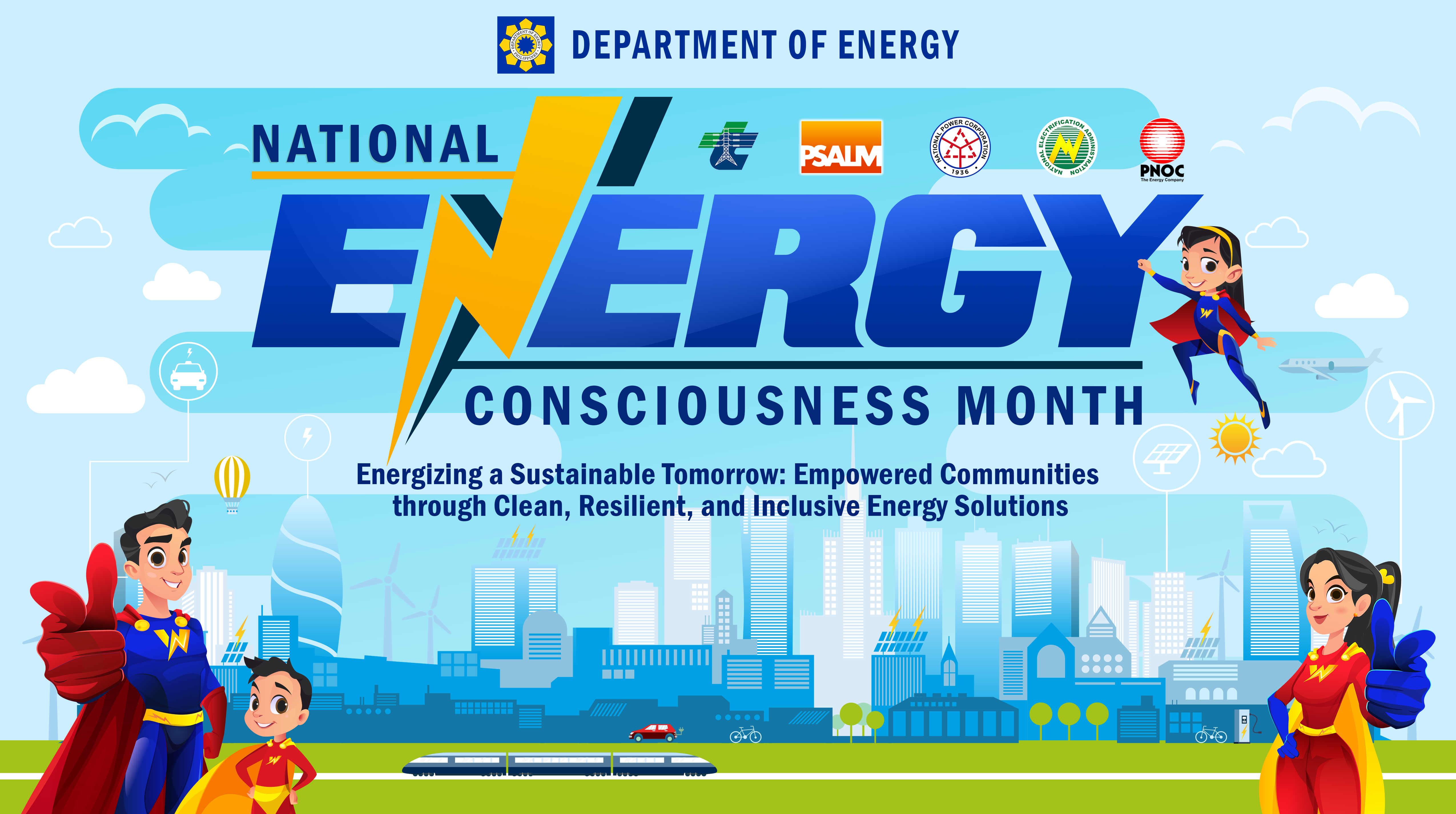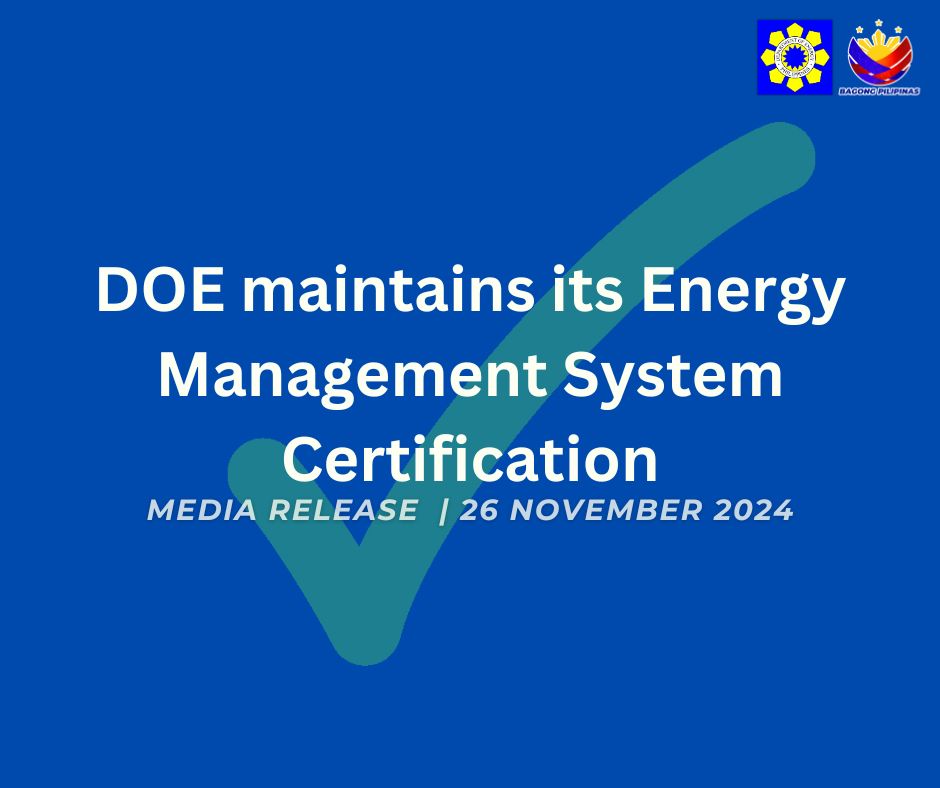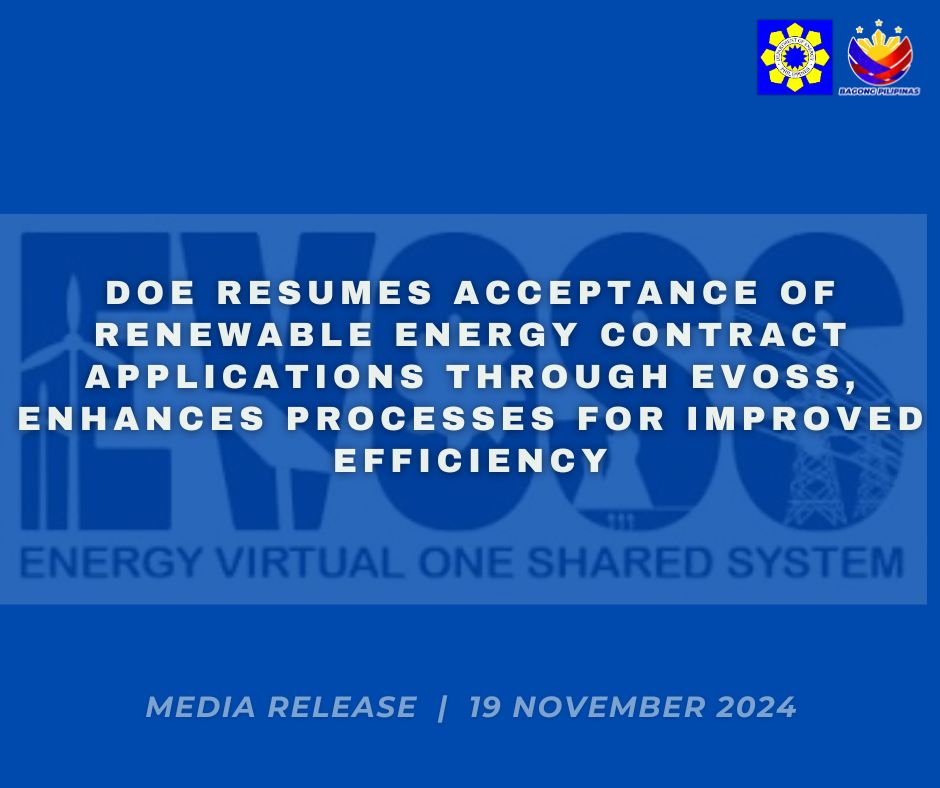DOE launches National Energy Consciousness Month 2024: Empowering Communities for a Sustainable Energy Future

As the Department of Energy (DOE) marks its 52nd anniversary, the observance of the National Energy Consciousness Month (NECM) for 2024 will be launched this coming Monday, 02 December 2024.
With the theme “Energizing a Sustainable Tomorrow: Empowered Communities through Clean, Resilient, and Inclusive Energy Solutions”, the NECM’s annual observance seeks to further advance the country’s sustainable energy future aligned with the United Nation’s Sustainable Development Goal (SDG) 7 which targets universal access to energy, increasing renewable energy’s share in the energy mix, and doubling the rate of energy efficiency improvement.
Under the leadership of President Ferdinand Marcos Jr., this administration is driving efforts to accelerate and expand the development of the country’s domestic energy sources. A key priority is the rapid advancement of renewable energy, with the goal of increasing its share in the power mix from the current 22% to 35% by 2030 and 50% by 2040. Complementing this, the government aims to sustain energy efficiency at a minimum of 10% of total demand through 2050, achieve an electric vehicle market share of at least 50%, and establish a nuclear power generation capacity of at least 1,200 MW by 2032.
The DOE, alongside the energy family, will spearhead a series of energy-related campaigns across the country through energy literacy and awareness among Filipinos, while highlighting the collective role of the government and the Filipino people in achieving a sustainable energy future.
In 2007, Presidential Proclamation No. 1427 was issued declaring December of every year as NECM, to coincide with the DOE’s anniversary. The NECM provides a venue to create public awareness through information campaigns to bring the people toward judicious conservation and efficient utilization of energy as provided under said Proclamation.
Meanwhile, as part of the NECM celebration, the DOE will be conducting the following activities: Energy Investment Forum on 05 December 2024, Energy Policy Dialogue 2024 on 06 December 2024, 19th Energy Safety, Health and Environment Conference, Sustainable Energy Awards and the Energy Efficiency Excellence (EEE) Awards on 12 December 2024. ###




